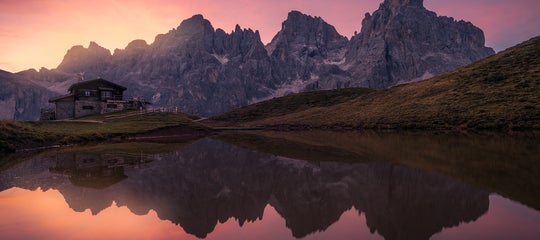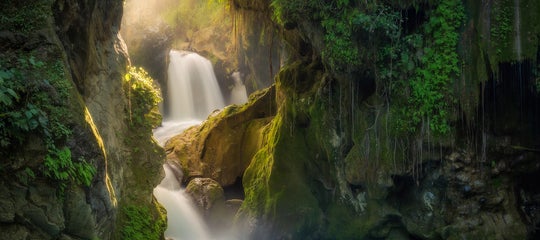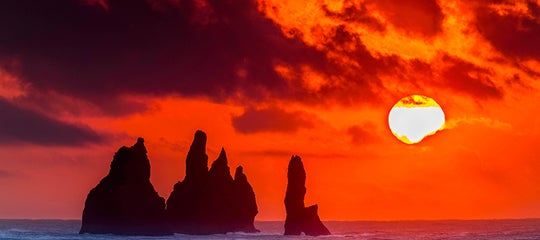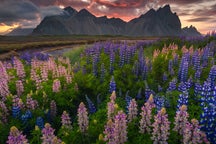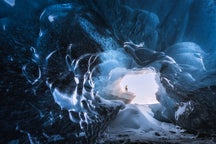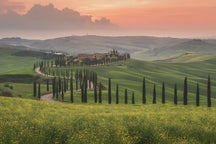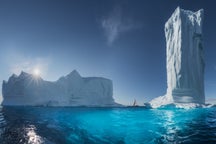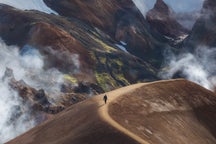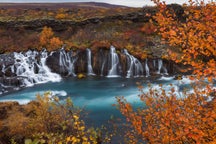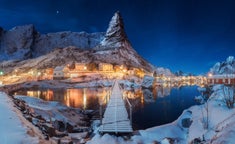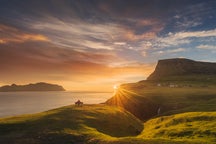
Like many before him, Jabi Sanz's passion for photography developed following a trip to Iceland. Since then, this Spanish landscape and travel photographer has travelled extensively, capturing dramatic images from far and wide.
- Check out this Patagonia Summer Photography Tour in Torres del Paine
- Explore these articles on Landscape and Nature Photography
- Discover this Misty Mountains of Norway Hiking & Camping Adventure
Jabi's work is as awe-inspiring as it is enchanting, demonstrating the beauty of nature at the mercy of the elements. His masterful use of post-processing software to balance the interplay of light and shadow has resulted in evocative images that speak to the audience.
This week, we had a chance to chat with Jabi about the challenges he has faced during his career, the steps that he takes to capture the landscape as he has envisioned, as well as the photography workshops that he will be hosting in the near future.
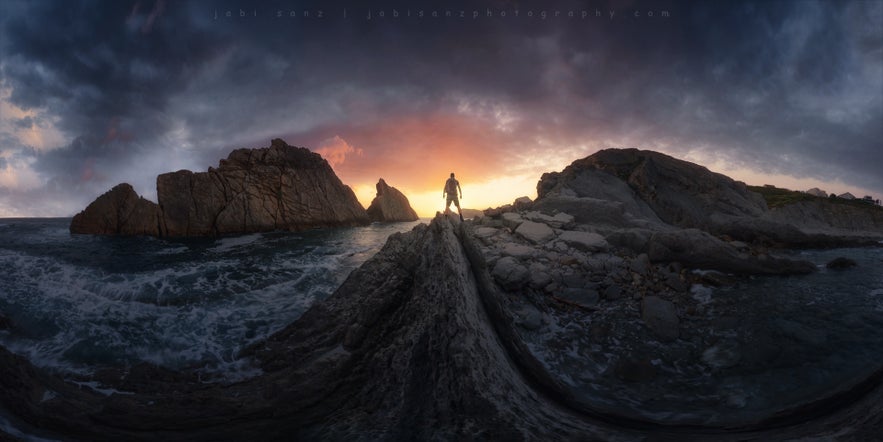 Jabi Sanz is a landscape and travel photographer from Spain. Photo by: 'Jabi Sanz'.
Jabi Sanz is a landscape and travel photographer from Spain. Photo by: 'Jabi Sanz'.
Hello Jabi! Thanks for joining us today. For people who may not be familiar with you and your work, how would you describe yourself and what you do with your photography? Where did it all begin?
Thank you for the opportunity to share something about myself. I have been fascinated by the possibilities of photography since my trip to Iceland in August 2017. I grew up in Pamplona, a small city in the north of Spain. My parents always used to take me to explore nature, not far from my city. We have the incredible Pyrenees just an hour from home. But I never had a camera or a passion for photography until that trip to Iceland, where I bought my current camera. That country blew my mind and now I can’t live without photography.
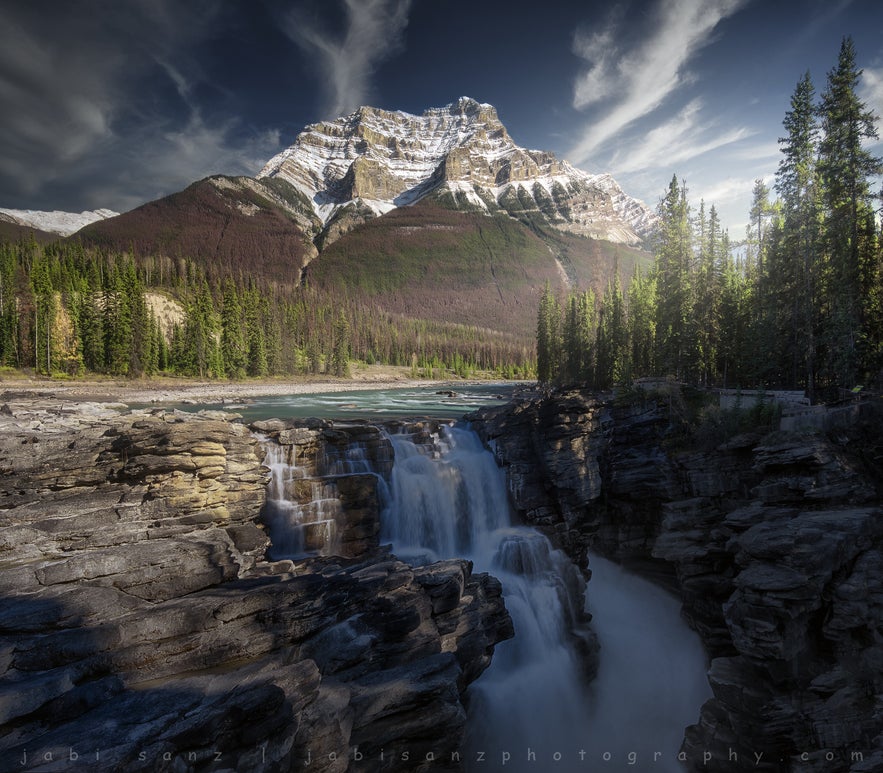 Athabasca Falls. Photo by: 'Jabi Sanz'.
Athabasca Falls. Photo by: 'Jabi Sanz'.
I think photography makes me connect to nature in a different way than I have ever experienced before. Nature is my inspiration, with all the beauty, variety of colours, sounds and compositions. Nature has made me travel and get to know places that I didn’t t think I would go before.
Who have been your mentors throughout your journey so far? How have they contributed to the way in which you practice photography today?
The internet has been a great source of information for me, particularly. I used different online sharing platforms, such as YouTube, Instagram or Facebook, to learn from other photographers and to obtain feedback on my own work. Probably one of the most impactful and powerful resources today is YouTube! There are so many amazing channels on which you can learn a lot about photography, from in-the-field camera techniques to post processing. I’ve actually started my own YouTube channel as my way of giving back to the photography community, teaching the things I have been learning all this time. I upload post-processing tutorial videos, tips, reviews and experience – all of it is free content! And because you can't really get to know in-depth techniques on YouTube, I have also learned a lot from purchasing start-to-finish tutorial videos from a few of my favourite photographers.
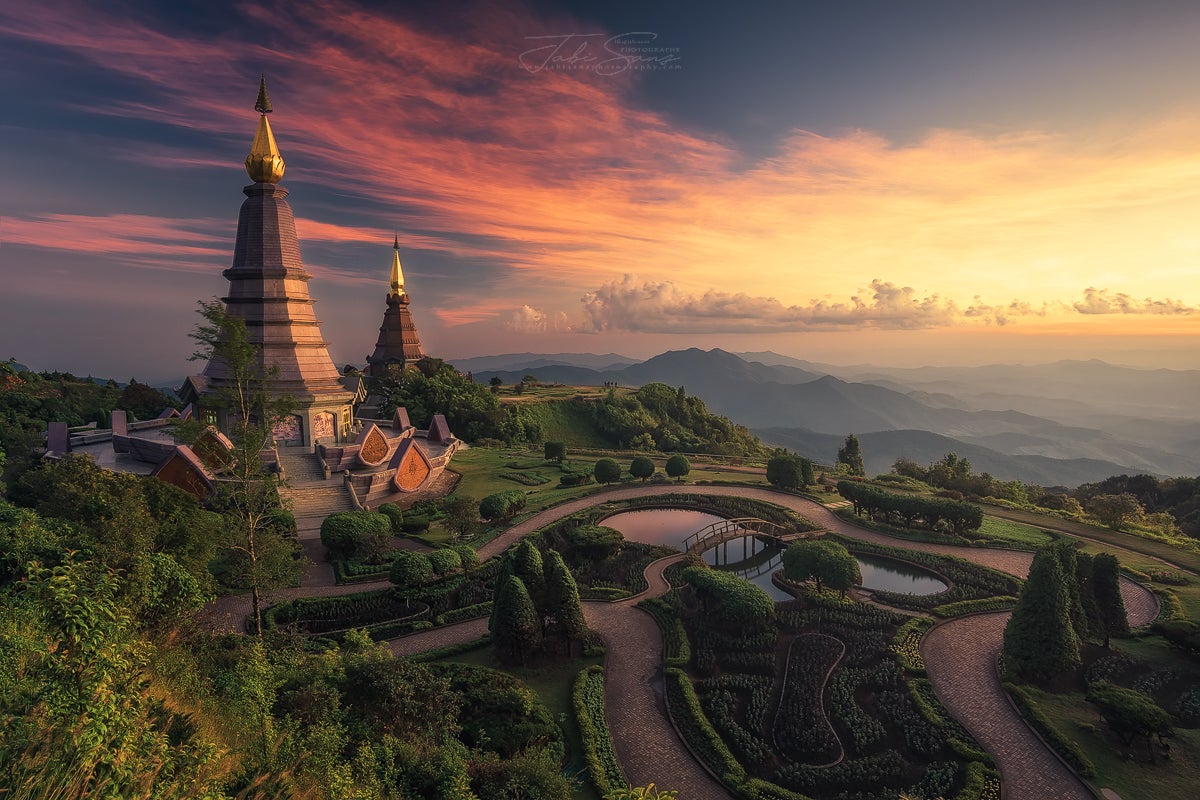 The Twin Sister. Photo by: 'Jabi Sanz'.
The Twin Sister. Photo by: 'Jabi Sanz'.
- See also: Interview with Óli Haukur
What is your favourite thing about working as a professional photographer? Have there been any challenges that you’ve had to face in your career?
The chance to do what I love. I have my own work, so this is more for pleasure than anything else. Just this year, a few months ago, I launched my own agency with my partner, Eduardo Fuster, in which we offer trips around the world. I have always loved to travel and now I have joined it with photography. It makes a perfect combination.
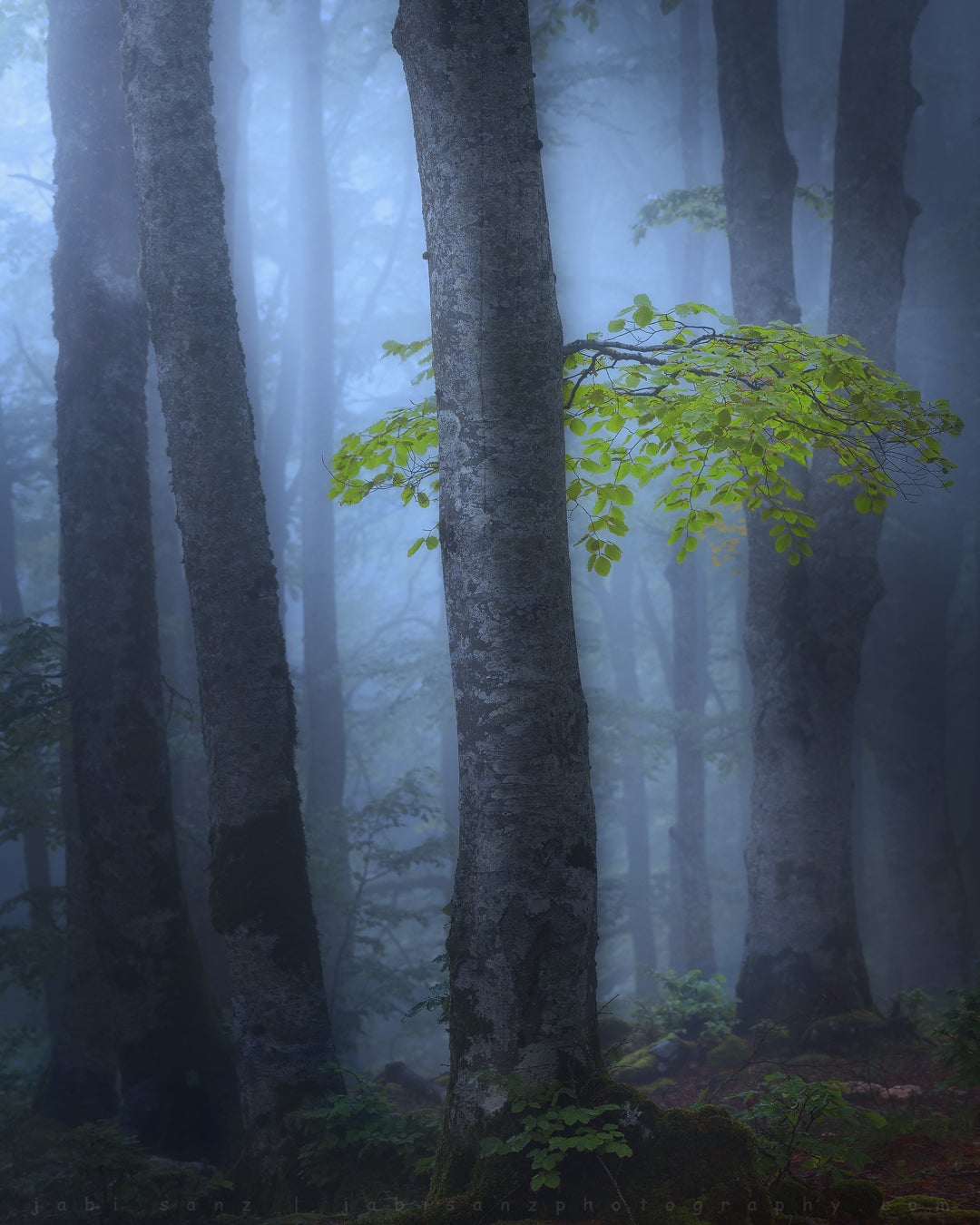 Brothers and Sisters. Photo by: 'Jabi Sanz'.
Brothers and Sisters. Photo by: 'Jabi Sanz'.
Well, as in everything in life, there are always complications and especially, in a world as competitive as the one we live. I always try to do things from the heart and if I stumble along the way and things get turned upside down, I try to be positive, to stand up and fight. I have always believed in Karma and I believe that if you are honest and respectful, good things will come to you.
Apart from that, in my personal progress as a photographer and artist I think the road is long and hard. You won't always be on top. You're not always going to edit or take pictures at the highest level. It's very difficult to be consistent and always have results at 10 out of 10. It takes a lot of trial and error to develop a style that meets your expectations. Also, not every photo can be a winner either. Sometimes, the light doesn’t work out or the landscape doesn’t offer a stunning composition. But you must be patient and with hard work and perseverance, you will be rewarded.
Which country have you found to be a hidden gem in terms of landscape and nature photography? Besides visiting the iconic locations, do you do much exploring off the beaten track?
For me especially, Indonesia has won my heart and eyes. Maybe it is a very touristy place on vacation but not photographically. Last year, I had the opportunity to meet Daniel Kordan there. It is a country full of hidden gems to photograph, apart from having a very rich culture and delicious food. Because of COVID-19, this year could not be but for next year, I have a workshop scheduled for Indonesia.
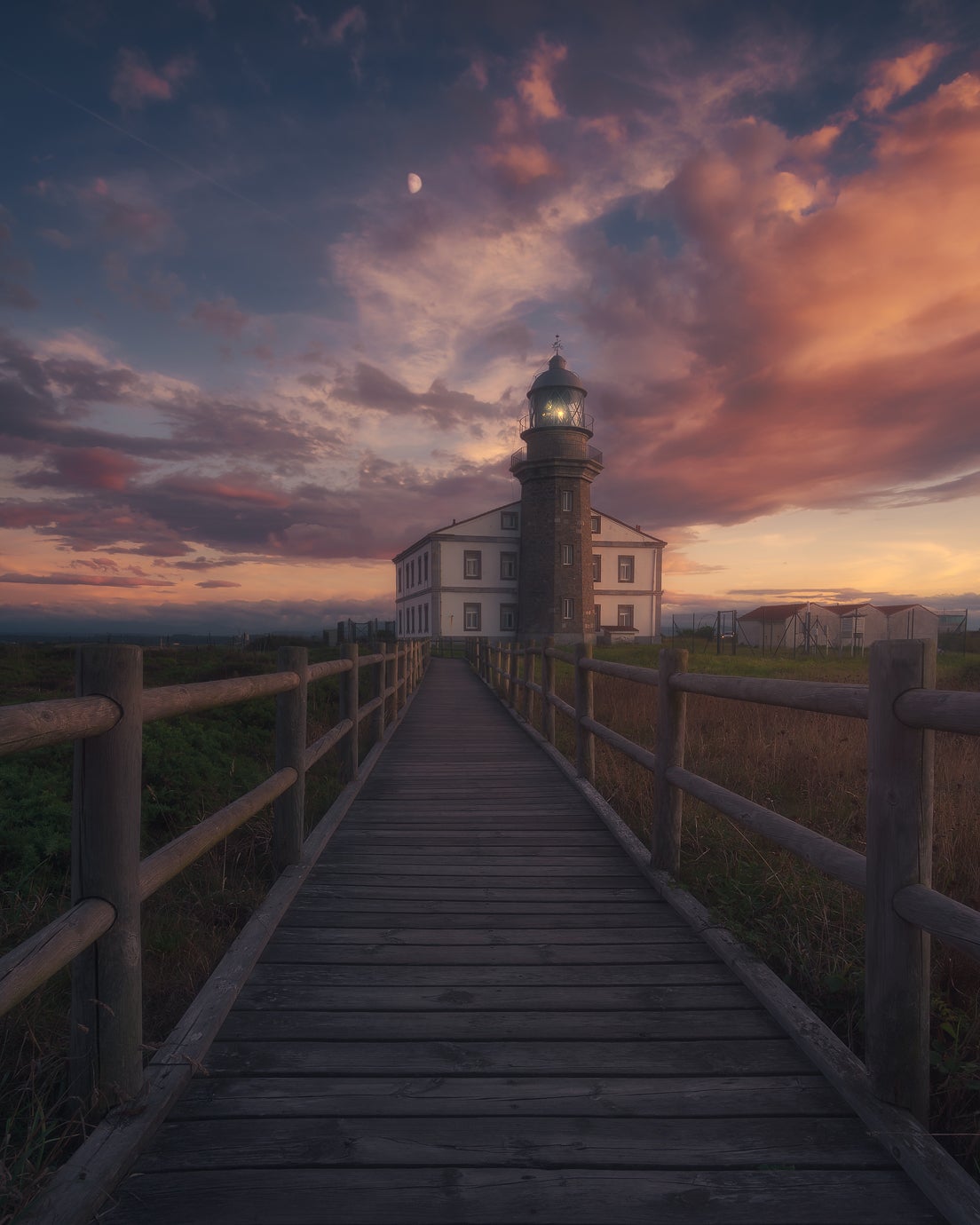 Camino de Luz. Photo by: 'Jabi Sanz'.
Camino de Luz. Photo by: 'Jabi Sanz'.
Personally, of course I like to visit and take pictures of the most iconic locations but I have found it much more interesting to visit those places that are not so well known. Why? Well, I have experienced that my creativity as a photographer goes much further. I don't feel conditioned by photos I have seen before, so I leave my head free and let it flow. It is something that I recommend to everyone.
You have an incredible portfolio of landscape photography from all around the world. Do you have a favourite country or place for photography that keeps drawing you back time and time again? What is it about this location that appeals to you?
Indonesia is probably my favourite but I cannot forget my own land. Northern Spain has a lot to offer, as many of you will know. The northern coast – its forests and the Pyrenees mountain range – are places I never get tired of returning to. I just recently spent two weeks riding in a van all over the north of Spain.
 Thinking in Blue. Photo by: 'Jabi Sanz'.
Thinking in Blue. Photo by: 'Jabi Sanz'.
What kind of work goes into the construction of your photographs? How do you pre visualise and plan what you want to shoot, before getting out there to capture it? Do you already have an idea about how you want to process a shot before you do it?
I take myself very seriously, everything that goes with it before I take a picture. I say seriously but I find it very entertaining and fun. I really enjoy both and also the picture that I'll get afterwards by doing the editing.
From home, I study the area I'm going to, in case I don't know it. I use Google Earth and other applications to watch the weather. I also try to talk to local photographers and friends who may know the area.
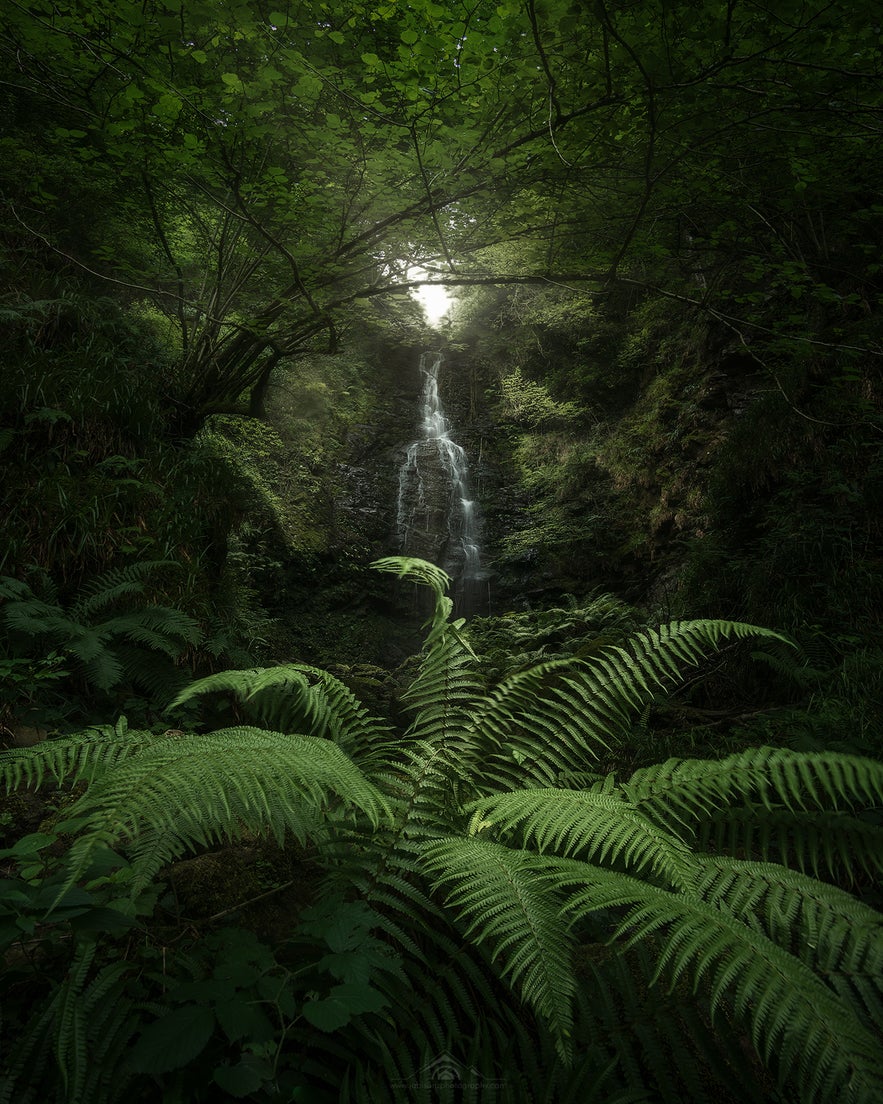 Green Factory. Photo by: 'Jabi Sanz'.
Green Factory. Photo by: 'Jabi Sanz'.
Once in the field, I try to see what the area has to offer and I always adapt to the circumstances. Even if I have already got more or less of a fixed plan before leaving home, I can change it later depending on the weather.
Yes, I have an idea of how I want to process a shot before I head out. It has happened to me many times that at the time of the shot, I am already envisioning how the photo will look after processing.
Describe the technical workflow that you do in post-production. How do you utilise software to distil mood, atmosphere and meaning in your photographs?
It all starts when you take the picture. I try to make my images dark without losing details in the shadows. Normally, I set my settings to the lighter side because today's cameras have so much dynamic range, so it's easy to recover all those dark parts of the RAW file. I think every picture is different, so I try to approach each image according to the mood of each one of them.
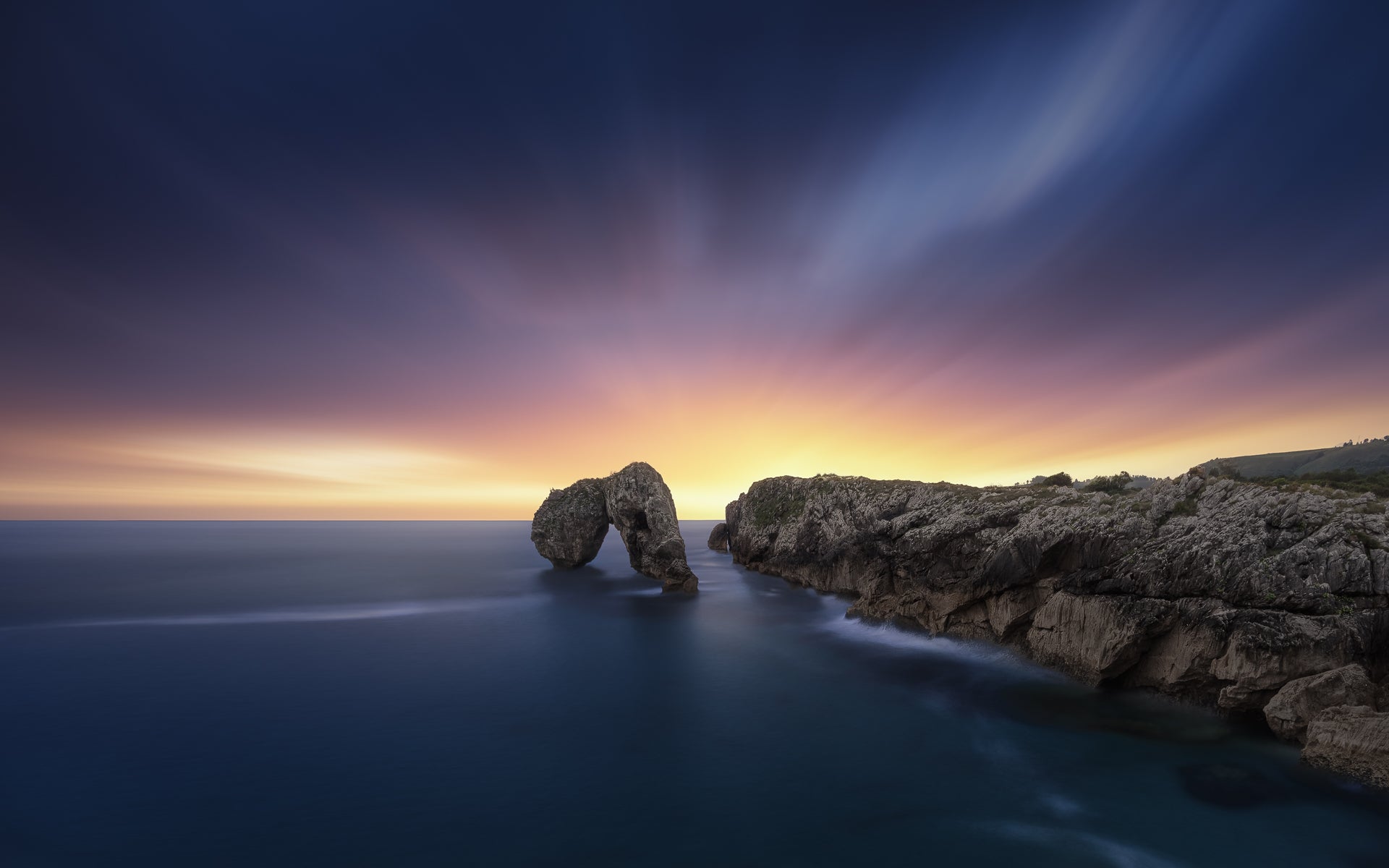 Water World. Photo by: 'Jabi Sanz'.
Water World. Photo by: 'Jabi Sanz'.
The first thing I do is to identify which is the most important subject in the picture. This is what I want the viewer to look at, so I try to emphasise that with the light and other elements. Then I try to give it some atmosphere and play with the colours.
What thoughts would you like people to come away with after they look at your photos?
The best prize a photographer or any artist can have is for the viewer to be perplexed by that photo, image, painting or work of art. To look at it again and again and to ask questions – where is it, wow this is the most beautiful place I have ever see, how would I like to go there, etc. If the person looking at my picture is a professional photographer, then let him recognise my work, that I have taken care of the composition, how the light enters the photo, the chosen place and more.
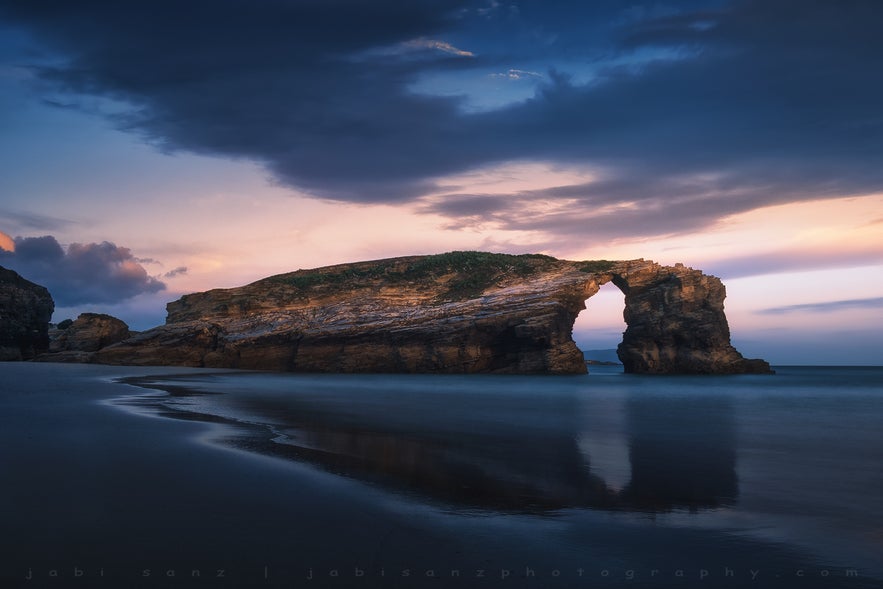 Catedrales Galicia. Photo by: 'Jabi Sanz'.
Catedrales Galicia. Photo by: 'Jabi Sanz'.
What advice do you have for photographers who are trying to get their work seen and to establish a portfolio? Is there something in particular that is paramount to running a successful photography business?
To be constant, persevering and patient. That's the trick... and working, not being afraid of making mistakes, trying and trying.... and then if you want your work to be seen by other people, there's no other way than to invest time in social networks such as Facebook and Instagram. Some of the platforms that I like the most to share my work and get inspired with are 1x, PhotoImaginArt, Fstoppers and 500px.
Do you have any advice specifically for young people who are hoping to break into the world of landscape photography? What sorts of difficulties might they face and how can they build upon their strengths to achieve their goals?
Don't be afraid to make mistakes. Ask colleagues, friends or family to share your photos with others and be open to criticism. Enjoy what you do and spend as much time as possible learning, both in-field and at home. Something I've always liked is to spend at least an hour before bedtime looking at or reading something in relation to photography.
 Meanders of Life. Photo by: 'Jabi Sanz'.
Meanders of Life. Photo by: 'Jabi Sanz'.
In this highly visual era, what impact can landscape photography have upon others? Do you think it can be used in a positive way to make a change in the world? How would you like to see it being used, aside from on display on someone’s wall or in a gallery?
This is a complicated answer. I would love for photography to have a positive impact on the world, but I have found that many times, it can be the opposite. Let me explain. For example, a place like Valensole, France. It has become so famous for photography that now, many people from all over the world want to go there just to have their picture taken in the lavender field – not caring, in the least, if they are spoiling the work of the farmer who has been working hard all year to cultivate that field. That makes me angry. If there is one thing that makes me like photography, it is nature, pure and clean, and we should all try to preserve it. It's our Mother Earth.
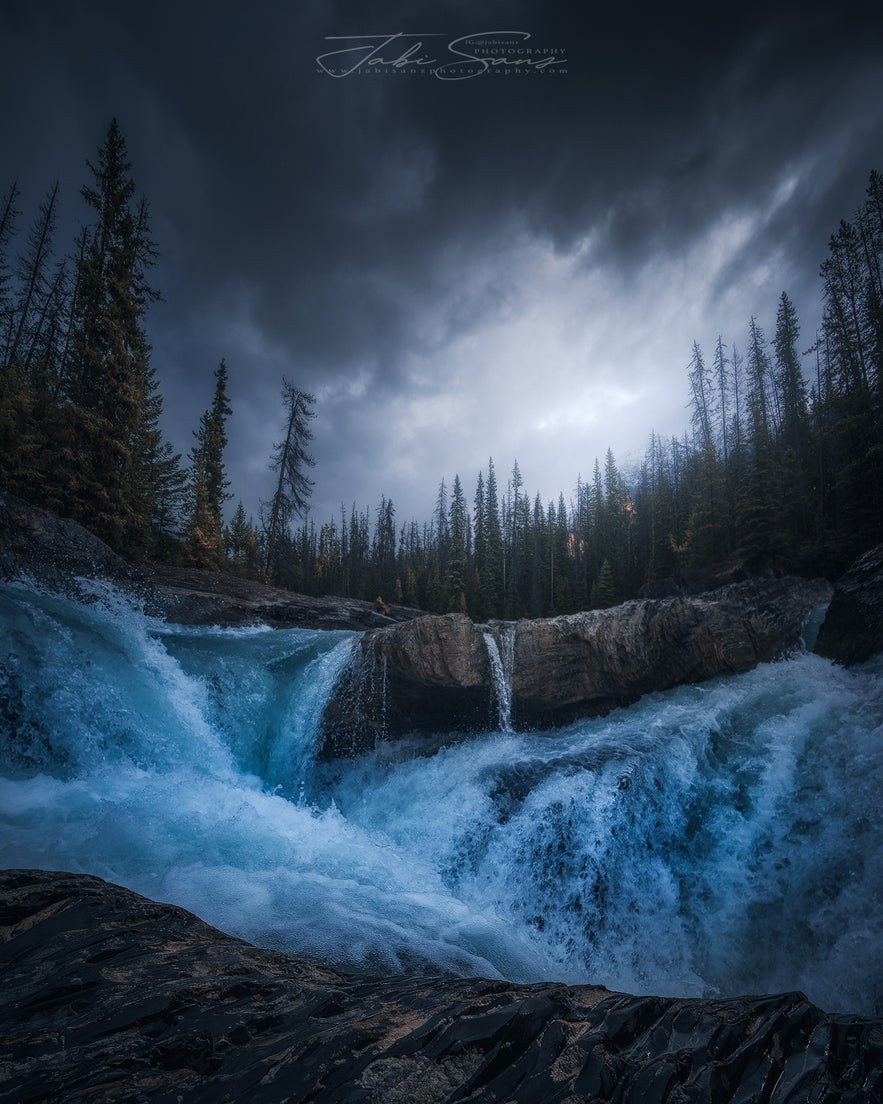 Power of Nature. Photo by: 'Jabi Sanz'.
Power of Nature. Photo by: 'Jabi Sanz'.
How can photographers travel and capture landscapes whilst making sure that they’re not having a negative impact on the environment they’re shooting in?
Well, that's simple. They just need to be aware that they should take care of the environment and become better stewards of our natural resources.
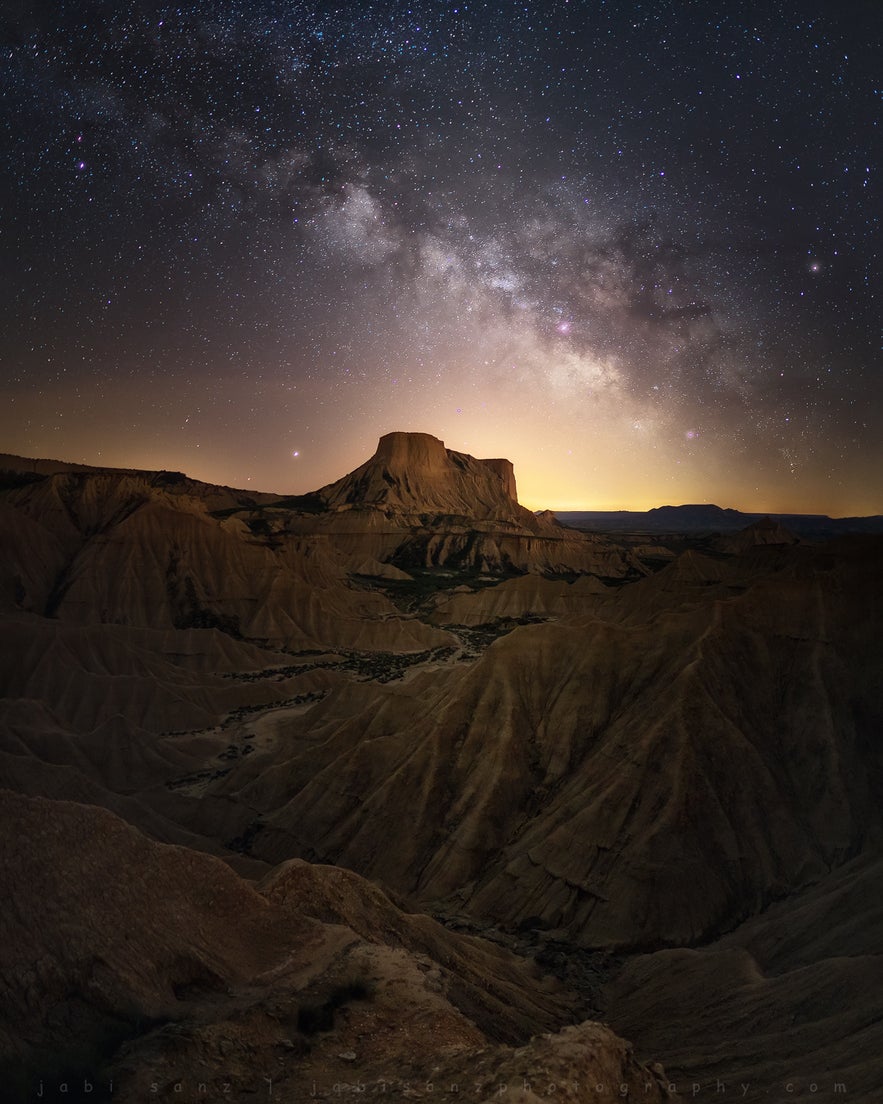 Starry Night. Photo by: 'Jabi Sanz'.
Starry Night. Photo by: 'Jabi Sanz'.
Do you think nature photographers have a responsibility to educate the public on conservation issues? How can they do this effectively with their photography?
Everyone should have that responsibility, not just landscape photographers. From the time you're born, when you're at school and your parents... they should all teach and instil that.
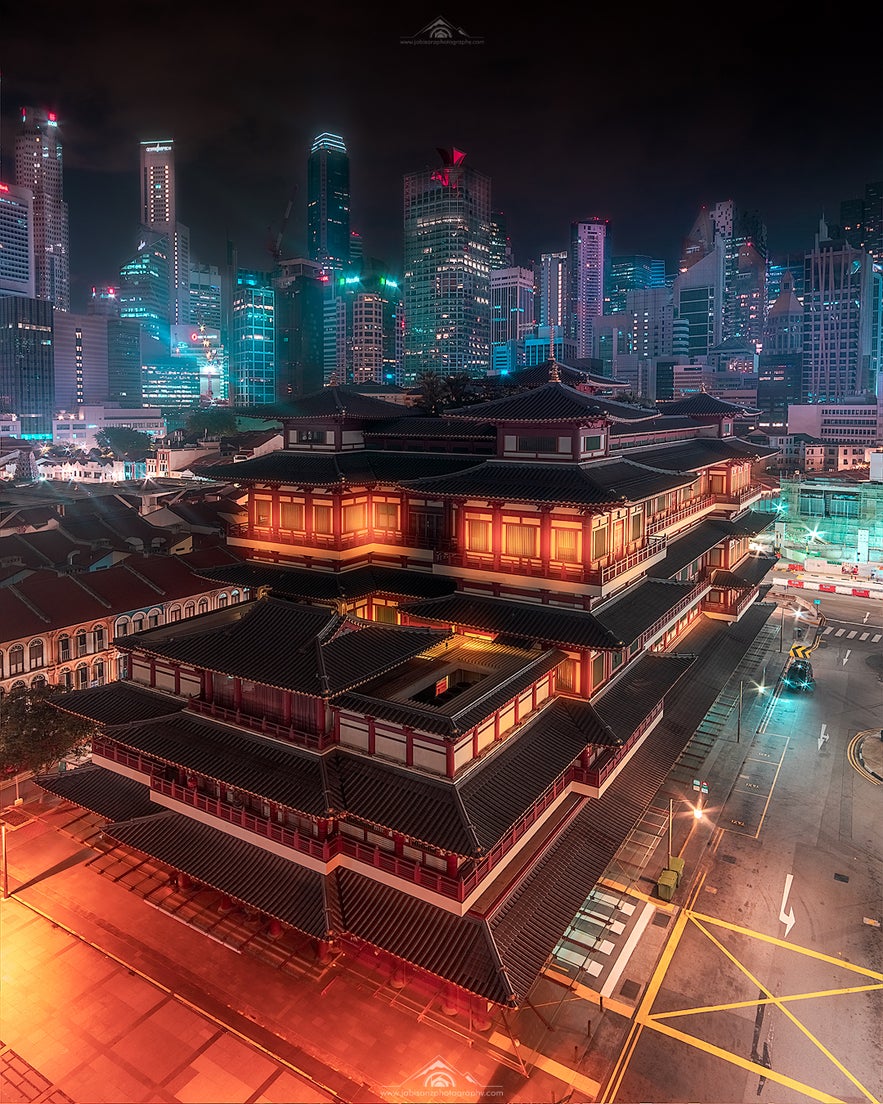 The Ancient Temple, Singapore. Photo by: 'Jabi Sanz'.
The Ancient Temple, Singapore. Photo by: 'Jabi Sanz'.
You’ve been working on scheduling a number of photography tours and workshops, in particular to Canada, the Dolomites, Spain, Thailand, Indonesia and Lake Baikal. How has COVID-19 changed these plans?
This COVID-19 thing has affected everyone, not just the photographers who do workshops or tours. Luckily, it's not my only source of income but I've obviously had to cancel all trips.
 The Magic Forest. Photo by: 'Jabi Sanz'.
The Magic Forest. Photo by: 'Jabi Sanz'.
Thank you for sharing your thoughts with us today! Tell us a little bit about what you’re currently working on and what’s in store for you in the coming year.
The pleasure it’s mine. I sincerely hope you like the interview and I will always be here for those who want to ask me something.
Right now, I am working hard with my new photo travel agency which will offer many destinations around the world. I am also in collaboration with an agency in Asia to work as a guide and just recently, a few days ago, I became a Spanish ambassador for Kase, a great brand of filters, as well as its distributor (3DPideas) in Spain .
For more information on Jabi Sanz's work, you can visit his website or find him on Facebook, 500px, 1x, Fstoppers, PhotoImaginArt and Instagram.
Discover the beauty of nature as you learn how to use your camera! Check out our range of international photo tours and photography workshops.


